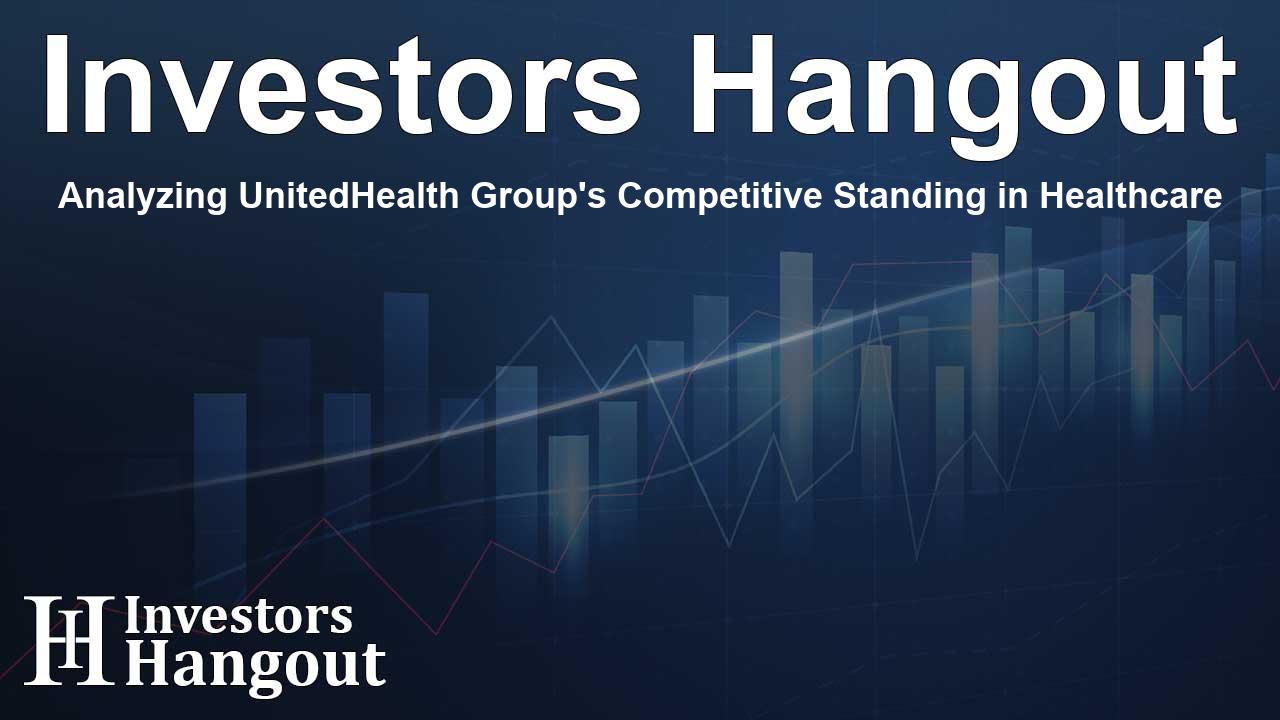Analyzing UnitedHealth Group's Competitive Standing in Healthcare

An Overview of UnitedHealth Group and Its Competitors
In today’s ever-changing healthcare landscape, analyzing a company like UnitedHealth Group (NYSE: UNH) alongside its competitors is crucial for both investors and market analysts. This article aims to provide a detailed comparison of the industry, focusing on financial stability and growth trajectories.
UnitedHealth Group Background
UnitedHealth Group is a leading player among private health insurers, providing coverage to around 50 million members worldwide, including a notable presence outside the United States. The company excels in various insurance models, such as employer-sponsored and government-supported options, which has enabled it to scale significantly within managed care. Furthermore, its strategic investments in the Optum divisions have strengthened its position, shifting it into a major force in healthcare services that includes medical, pharmaceutical, and analytical offerings.
Financial Metrics Comparison
Looking at essential financial ratios provides key insights into UnitedHealth Group's market standing and operational efficiency compared to its peers in the Health Care Providers & Services sector.
Key Financial Ratios Explained
-
The Price to Earnings (P/E) ratio for UnitedHealth Group is currently 38.25, which is significantly higher than the industry average, implying that the market views the stock as a premium investment.
-
Its Price to Book (P/B) ratio stands at 5.97, also exceeding the industry norm, suggesting that investors might be paying a considerable amount for the company's book value.
-
On the flip side, the Price to Sales (P/S) ratio of 1.41 is lower than the industry average, which could indicate that the stock may be undervalued based on sales metrics.
-
Additionally, UnitedHealth Group's Return on Equity (ROE) is recorded at 4.79%, showcasing how effectively the company uses equity to foster profitability and growth.
-
The company has demonstrated a noteworthy Earnings Before Interest, Taxes, Depreciation, and Amortization (EBITDA) of $7.67 billion, reflecting solid operational efficiency.
-
With a gross profit of $21.06 billion, UnitedHealth proves its capability to generate strong earnings from its core operations.
-
However, its revenue growth rate of 6.61% remains below the industry average of 14.14%, signaling potential challenges in expanding sales.
Understanding Debt Management
A key part of financial analysis is grasping a company's debt structure. The debt-to-equity (D/E) ratio serves as a primary measure to evaluate a company’s leverage.
Insights on Debt to Equity Ratio
-
UnitedHealth Group’s D/E ratio currently stands at 0.84, placing it in line with its closest competitors.
-
This ratio highlights a considerable reliance on debt financing, which may heighten financial risks and add volatility to the company’s financial health.
Summary of Key Takeaways
In conclusion, UnitedHealth Group's financial ratios present a mixed narrative. While the elevated P/E and P/B ratios could indicate overvaluation, its low P/S ratio may suggest that it’s undervalued in terms of revenue. The company excels in metrics for profitability, like ROE and EBITDA, but finds itself under pressure as revenue growth is trailing behind that of its competitors.
Frequently Asked Questions
What types of services does UnitedHealth Group offer?
UnitedHealth Group primarily offers health insurance and various related healthcare services to its members across the globe.
How does UnitedHealth Group compare to its industry peers?
UnitedHealth Group exhibits strong profitability metrics; however, its rate of revenue growth lags behind some competitors in the sector.
What influences UnitedHealth Group's P/E ratio?
The P/E ratio is shaped by market views regarding the company's growth potential and overall financial performance compared to its earnings.
Are there risks associated with UnitedHealth Group's debt levels?
Yes, a higher debt-to-equity ratio can signify increased financial risk and potential earnings volatility due to debt commitments.
What strategies is UnitedHealth Group pursuing for growth?
The company aims to broaden its service offerings, improve operational efficiencies, and invest in technology to enhance healthcare delivery.
About The Author
Contact Riley Hayes privately here. Or send an email with ATTN: Riley Hayes as the subject to contact@investorshangout.com.
About Investors Hangout
Investors Hangout is a leading online stock forum for financial discussion and learning, offering a wide range of free tools and resources. It draws in traders of all levels, who exchange market knowledge, investigate trading tactics, and keep an eye on industry developments in real time. Featuring financial articles, stock message boards, quotes, charts, company profiles, and live news updates. Through cooperative learning and a wealth of informational resources, it helps users from novices creating their first portfolios to experts honing their techniques. Join Investors Hangout today: https://investorshangout.com/
The content of this article is based on factual, publicly available information and does not represent legal, financial, or investment advice. Investors Hangout does not offer financial advice, and the author is not a licensed financial advisor. Consult a qualified advisor before making any financial or investment decisions based on this article. This article should not be considered advice to purchase, sell, or hold any securities or other investments. If any of the material provided here is inaccurate, please contact us for corrections.
